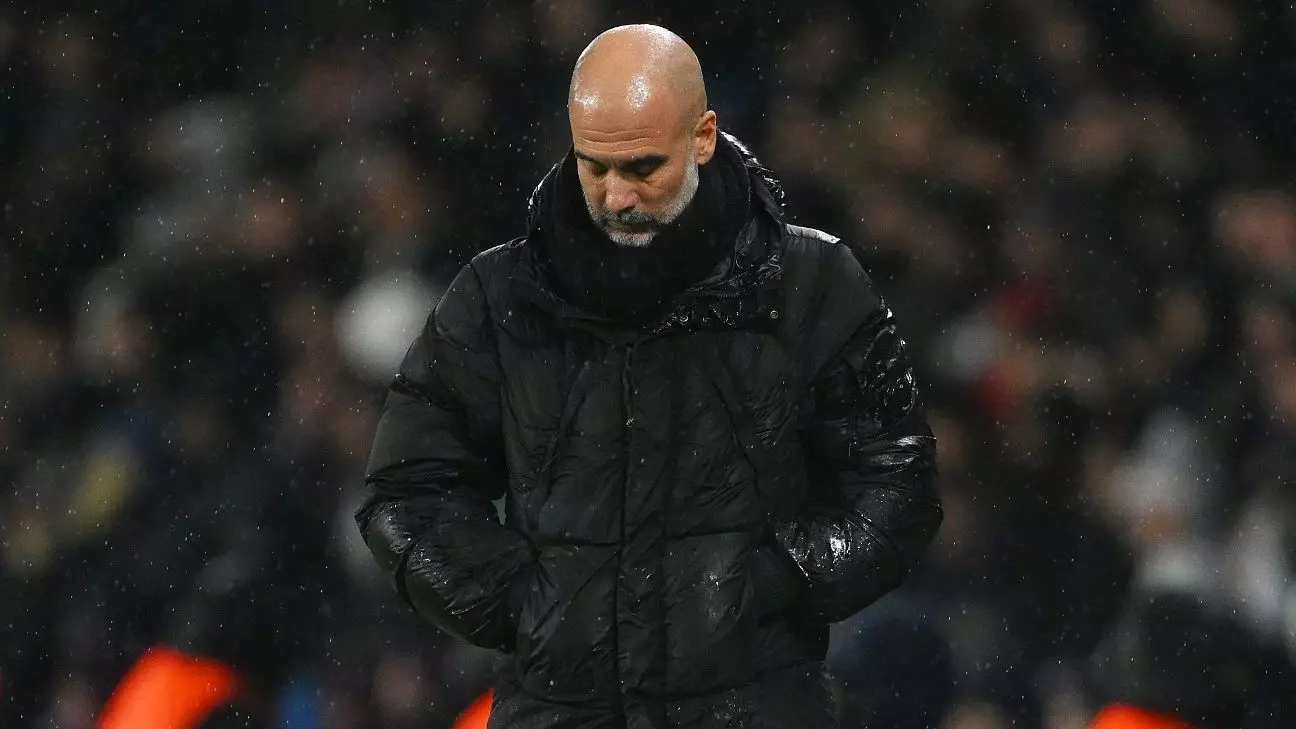In a stunning turn of events during the UEFA Champions League clash, Manchester City fell to Paris Saint-Germain (PSG) with a scoreline of 4-2. The defeat has placed City in a precarious position as they strive to maintain their hopes of advancing to the next stage. Pep Guardiola, the club’s manager, declared the upcoming match against Club Brugge as their “last chance,” emphasizing the gravity of the situation. City, who entered the match with a 2-0 lead after goals from Jack Grealish and Erling Haaland, found themselves succumbing to a relentless PSG squad, leading to questions about their resilience and tactical execution.
The loss signifies more than just a setback in a single match; it embodies a troubling trend for City. They have now surrendered a winning position nine times this season and experienced their third consecutive away defeat in the Champions League after a previously impressive run. Guardiola’s admission that his team was, on this occasion, outperformed by PSG encapsulates the frustrations that come with high-stakes football. As City prepares for their next crucial match, the manager has recognized that the team must confront their shortcomings head-on.
A Tactical Miscalculation
Guardiola attributed the defeat to an inability to assert control in midfield, particularly against PSG’s fluid and aggressive style of play. The match exposed gaps in City’s central play, demonstrating the difficulty they faced in matching PSG’s intensity. As Guardiola analyzed the situation, he acknowledged his opponents’ tactical prowess and their ability to dictate the pace and dynamics of the game. Manchester City opted for a strategy that could not withstand PSG’s demands, as the French club continually exploited weaknesses in City’s formation.
“The first half saw them create two clear chances against us,” Guardiola noted. This highlights a concerning aspect of City’s defense, which at times appears susceptible under pressure. Guardiola’s insights reveal the need for a more robust midfield presence to counteract adversaries like PSG, who employed a false nine strategy effectively. The failure to capitalize on their early lead and regain composure post-2-0 illustrates the psychological aspect of football that often dictates outcomes in elite competitions.
The Weight of Expectations
For Manchester City, every match in the Champions League is scrutinized through a lens of high expectations. The pressure to perform, compounded by their status as defending champions, creates an environment where inconsistency can lead to dire consequences. Guardiola’s public acceptance of the defeat serves as both a rallying cry and a stark reminder that football is unforgiving. The unyielding ambition of the club must now grapple with the reality of potential elimination from the tournament.
Guardiola emphasized the necessity of recovering quickly, particularly with an upcoming clash against Chelsea. The importance of this next fixture cannot be overstated as City seeks to reintegrate playmakers and bolster their morale. “We have to recover and do it better,” he stated, highlighting the immediate need for reflection and adjustment. This sentiment echoes throughout the squad as they prepare to confront not only the challenge posed by Chelsea but also the pressing necessity to regain their confidence and form.
As they head into the decisive match against Club Brugge, Manchester City finds itself at a crossroads. The stakes are undeniably high; a win is imperative for progression, while a loss would result in a humiliating early exit. Guardiola’s critique of his team’s performance against PSG underscores the challenges ahead. With a focus on tactical refinement and mental resilience, City must rise to meet the challenge if they are to fulfill their aspirations in the Champions League. Guardiola’s leadership will be pivotal as they navigate this turbulent period and strive to reclaim their form. The echoes of this defeat must transform into lessons learned as the team readies itself to fight for survival in a competition dominated by elite clubs.

Leave a Reply